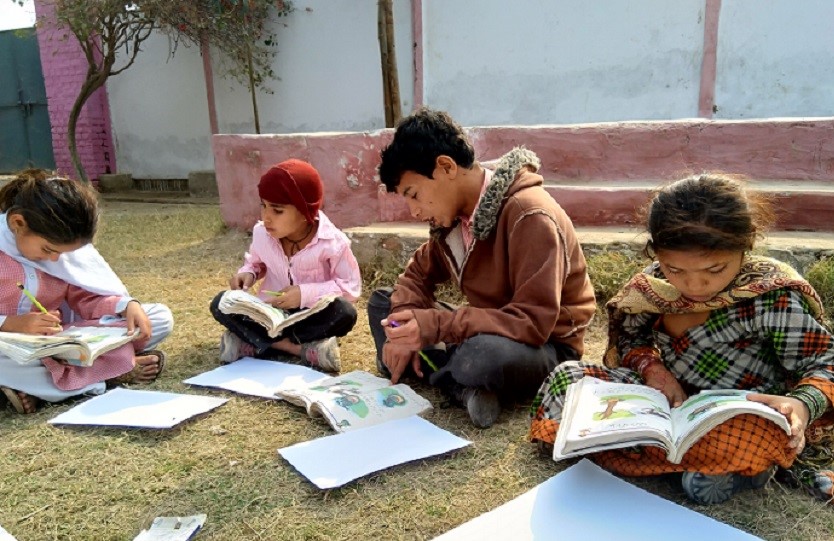Associate Professor Jean-Francois Trani is working on a four-year intervention alongside a research team in Afghanistan and Pakistan to improve learning achievements for students in grades 3-5.
Building on previous research—and using community-based system dynamics methods developed by Peter Hovmand, professor of practice at the Brown School— the team is engaging students, parents and teachers to elaborate on a diagram of the school system and identify effective ideas for intervention.
According to a 2017 UNESCO report, six out of 10 primary-school children in low-income countries are not reaching minimum levels of literacy and math. Across central and southern Asia, 81 percent of children and adolescents are not expected to reach minimum proficiency.
In interactions with parents, students, teachers and community representatives from more than 100 rural intervention schools, the researchers are finding out:
- Whether all students are achieving basic levels of proficiency in math, science and writing/reading; and whether they have psychosocial skills such as solving problems, communicating ideas, and learning to be together
- Why children are not learning
- What can be done to increase student learning achievements and reduce disparities in learning

“We want to explore and deepen the role that parents, teachers, children and community leaders can play in improving the quality of education,” Trani said.
The researchers work to achieve this goal through innovative social accountability mechanisms, giving local stakeholders more of a leadership role in deciding what changes to make to the school system. They will also work to implement and assess recommended interventions, which may include examples like building classrooms, training teachers in child-centered methods, and simple, but essential, measures like providing access to water to students so they are not thirsty during class.
During this phase, the team is working with school communities and three partners: Norwegian Afghanistan Committee, Swedish Committee for Afghanistan and the National Rural Support Programme in Pakistan, which support government schools or run community-based schools in rural areas of both countries.
“After implementing and evaluating the interventions, we want to disseminate and scale up these evidence-based solutions in the two countries and beyond,” Trani explained. “With the help of ministries of education, universities, and NGOs specializing in education, we will release our findings to academic, policymaker and practitioner networks.”
